By Douglas Esser
The University of Washington Bothell has been named one of the 112 best workplaces in King County for waste prevention and recycling, thanks to some red wriggler worms among other things.

The county’s solid waste division has been compiling the list of best places outside the city of Seattle for a decade, but this is the first year UW Bothell has been recognized for “exceptional commitment” to recycling and reducing waste sent to landfill.
The recognition is largely the work of Cassie Lubenow, below left, who came to campus in June as sustainability coordinator. She says she documented the University’s practices to draw attention to the work of others over the past decade or more.
She credits Tony Guerrero, associate vice chancellor for facility services, with spearheading energy efficiency measures, pushing for a pesticide free campus and starting a bed of red wriggler worms to compost food scraps.
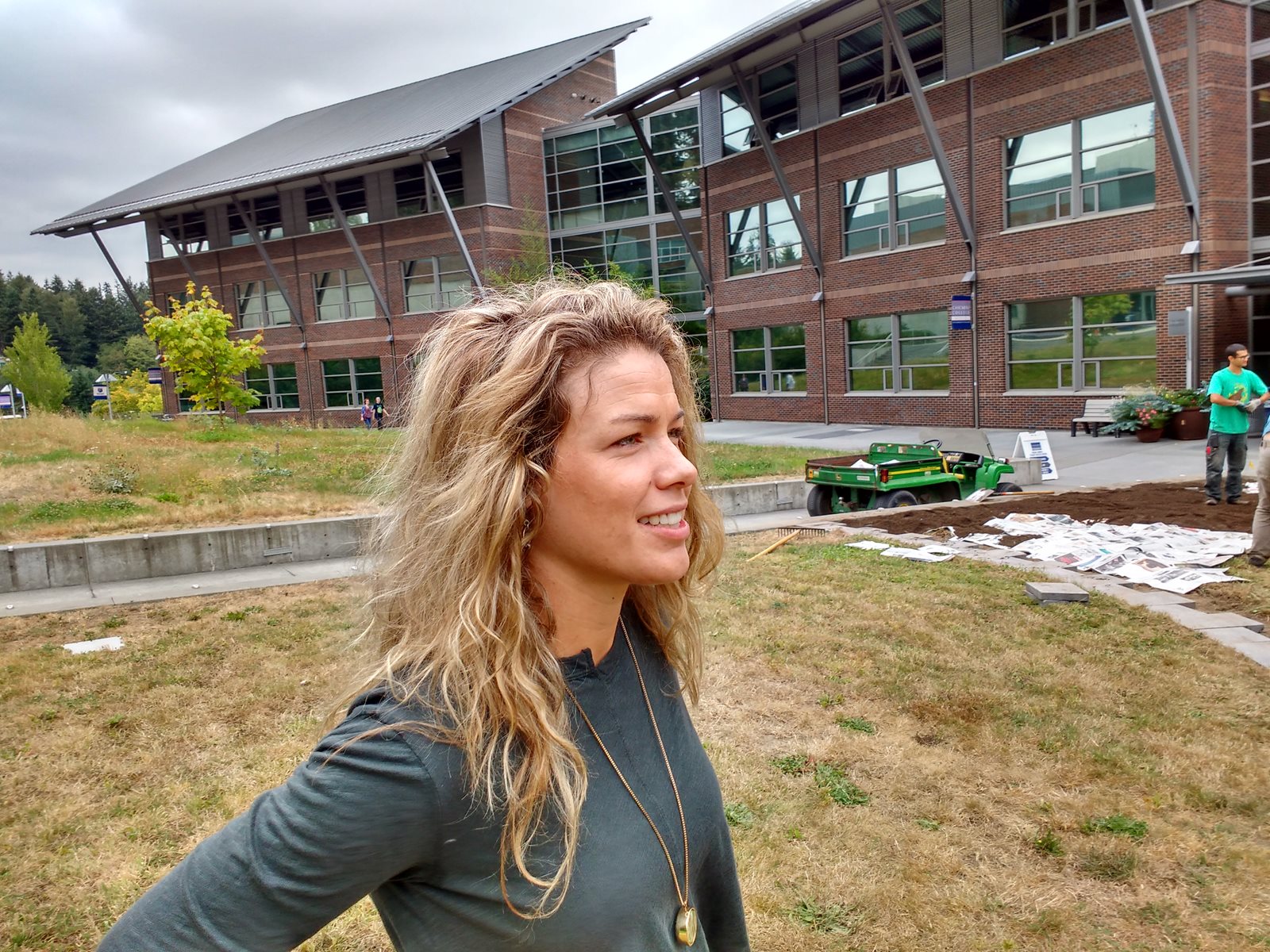
Meanwhile, Tyson Kemper, right, grounds supervisor, executed the pesticide-free campus and some related composting and water conservation practices.
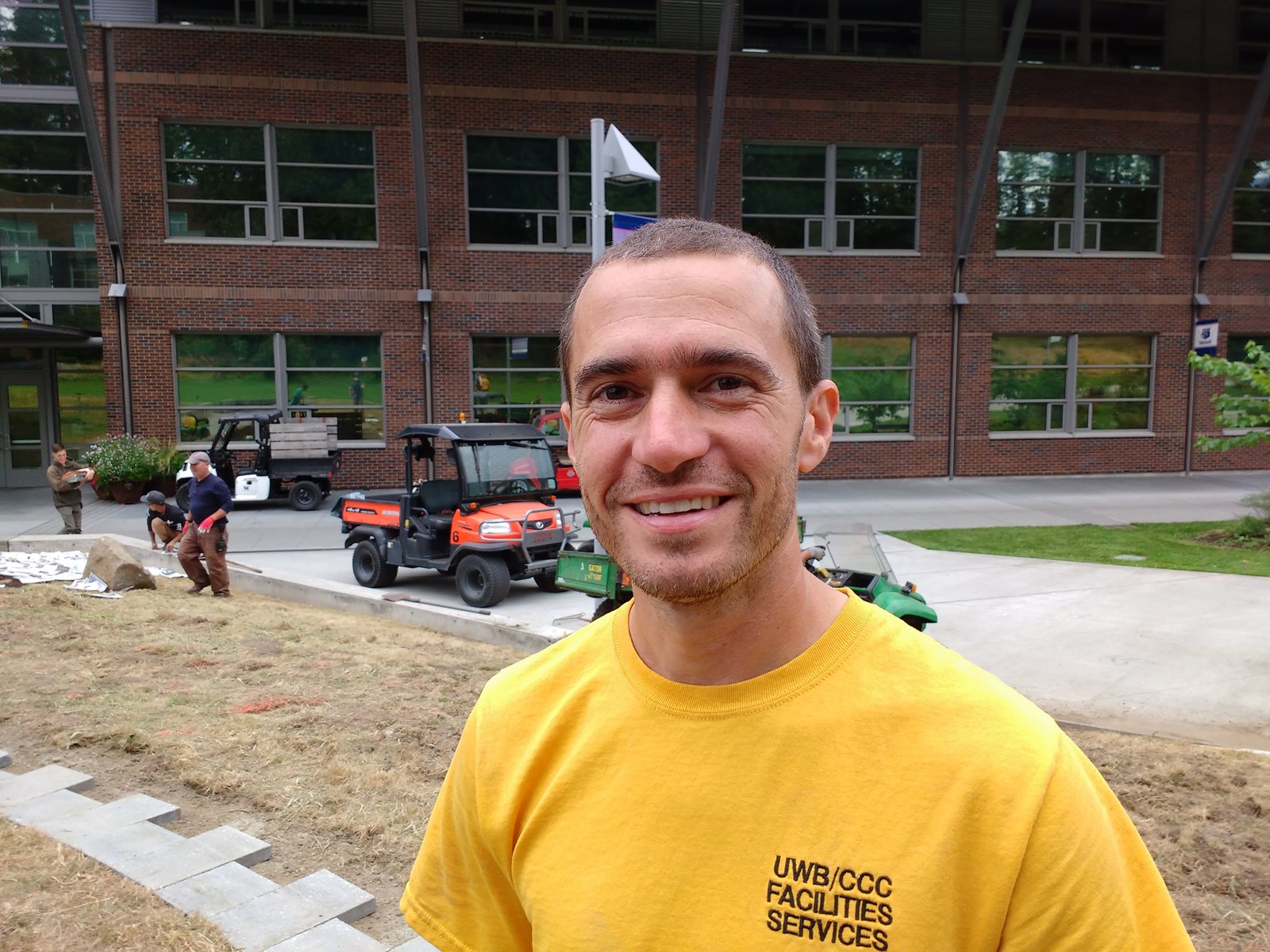
Lubenow also says all the campus gardeners are dedicated to sustainability, including maintaining the 58-acre wetland on campus. And, they play a role in helping educate students by cooperating with researchers and environmental classes, such as a “garbology” class taught by Rebeca Rivera.
“The goal is to train students to train other people,” Lubenow says.
With recycling and composting there should be almost nothing in campus trash cans, says Lubenow.
“We have a perfect simple system here to experiment with the future of urban development. We can be a pilot project for what the city of the future should look like,” Lubenow says. “That’s what universities should be doing.”
A good example of such a practice was the work Aug. 30 on a campus lawn, left. The lawn was being transformed from sod to flower bed using a process called sheet mulching. Recycling old newspapers from the library, gardeners covered the grass with sheets of paper and covered it with mulch. The layer of paper blocks grass and weeds until it breaks down, Kemper says. By next spring, the flower bed should really take off, attracting bees.
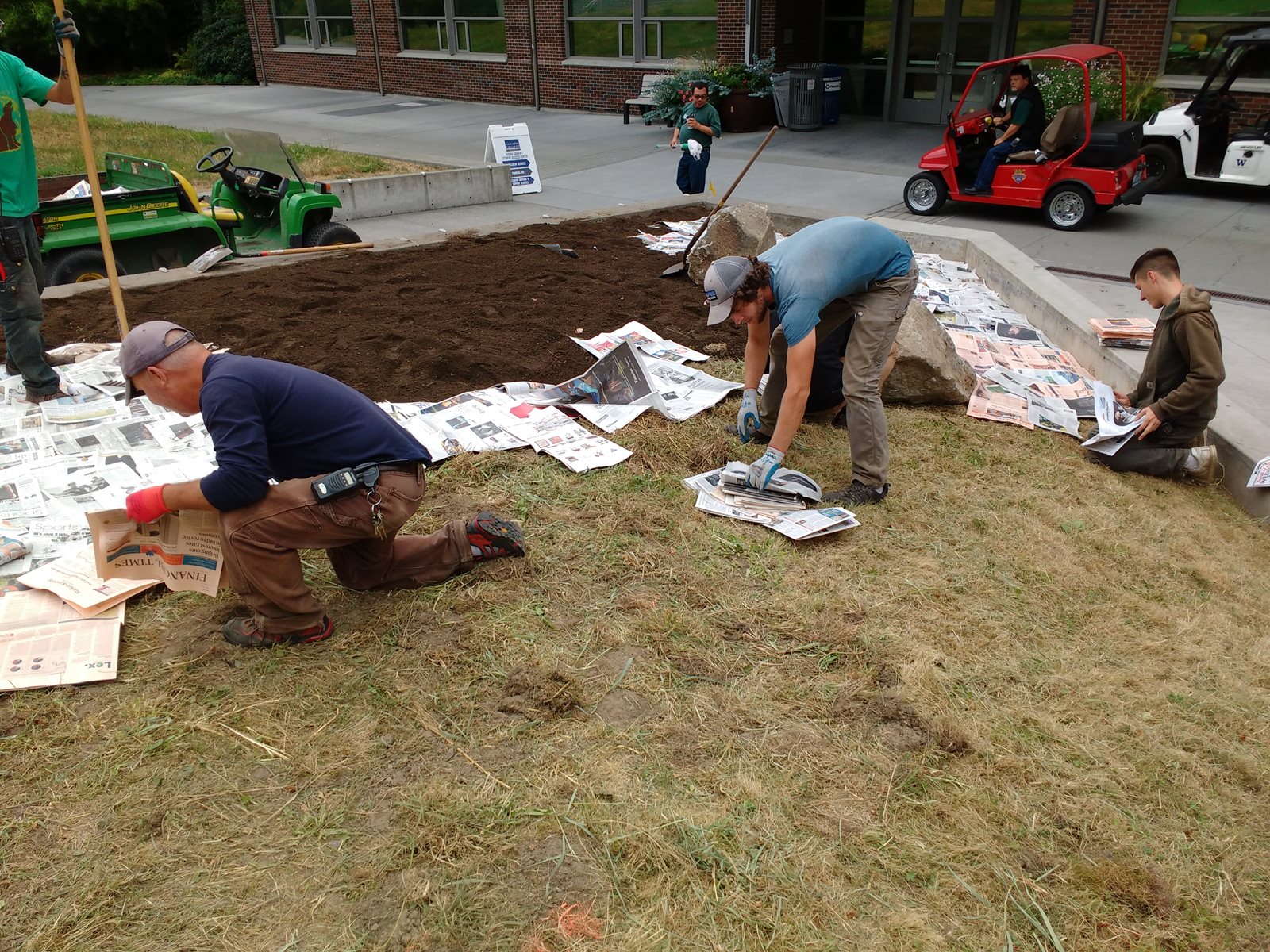
“It will be a mad pollinator bed for sure,” says Kemper.
Sheet mulching is an organic practice that grew out of the decision to stop using pesticides on campus about 10 years ago.
“We just went cold turkey,” Kemper says. “We decided to commit to 100 percent organic practices from day one.”
That led to changes in watering, pressure washing, using leaf blowers and composting. Instead of being trucked off campus, yard waste is now composted in bins near the sports fields.
One of the gardeners who regularly turns the compost to give the microbes oxygen is Marshall Leroy, right, a 2016 environmental studies graduate with a summer job on campus. Coffee grounds from Food for Thought give the compost a nitrogen boost.
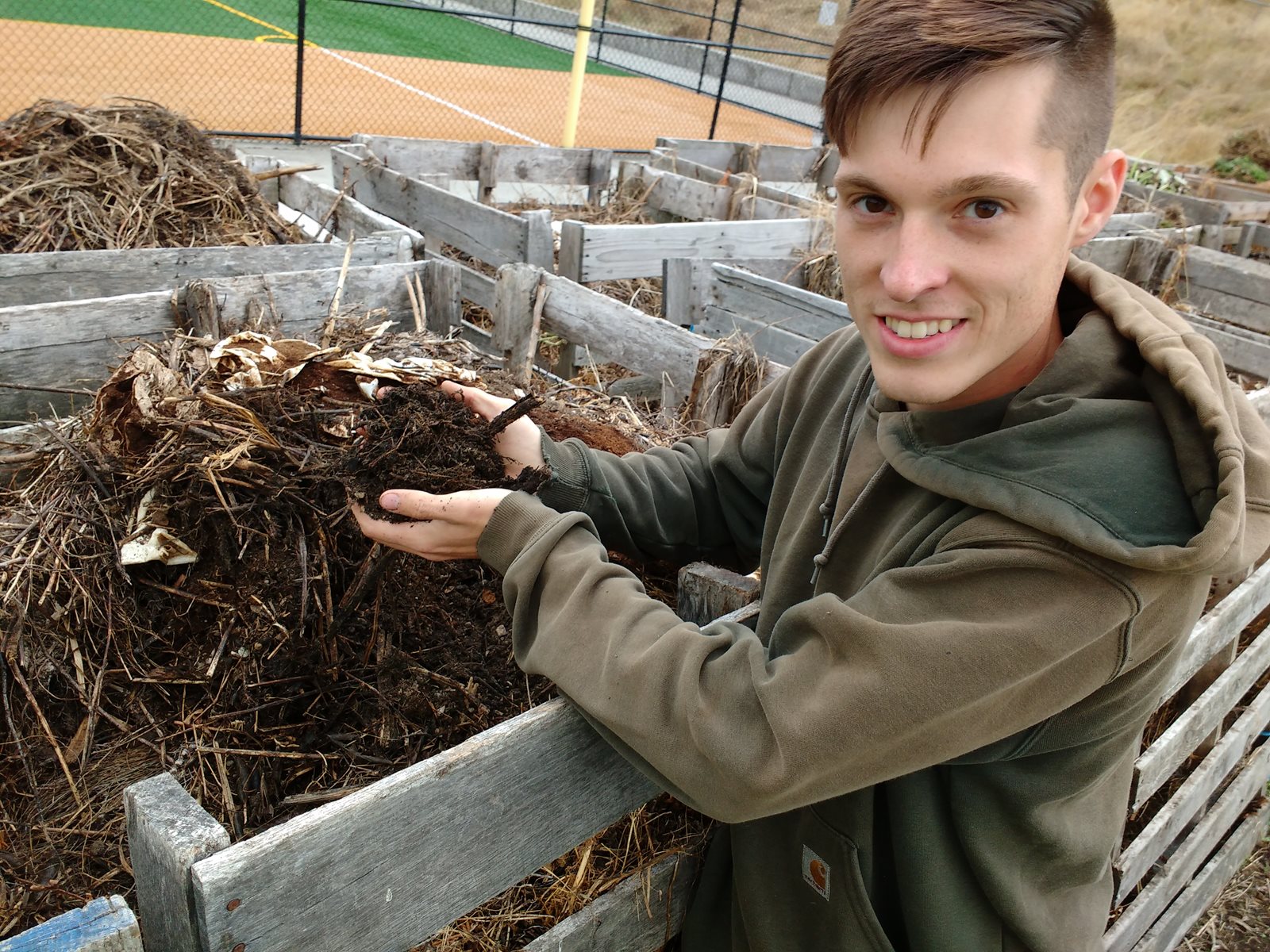
Leroy checks on a pumpkin patch growing out of a compost pile with several varieties of pumpkins, including one that may top 100 pounds. The pumpkins are destined for a carving contest on Oct. 24, National Food Day and the kickoff for a campus garden near the compost bins alongside the sports field.
Leroy also helps maintain the bed of red wriggler worms that devour uneaten fruits and vegetables. Some food preparation scraps (but no bread or meat) from the campus Subway shop find their way here, says Lubenow.
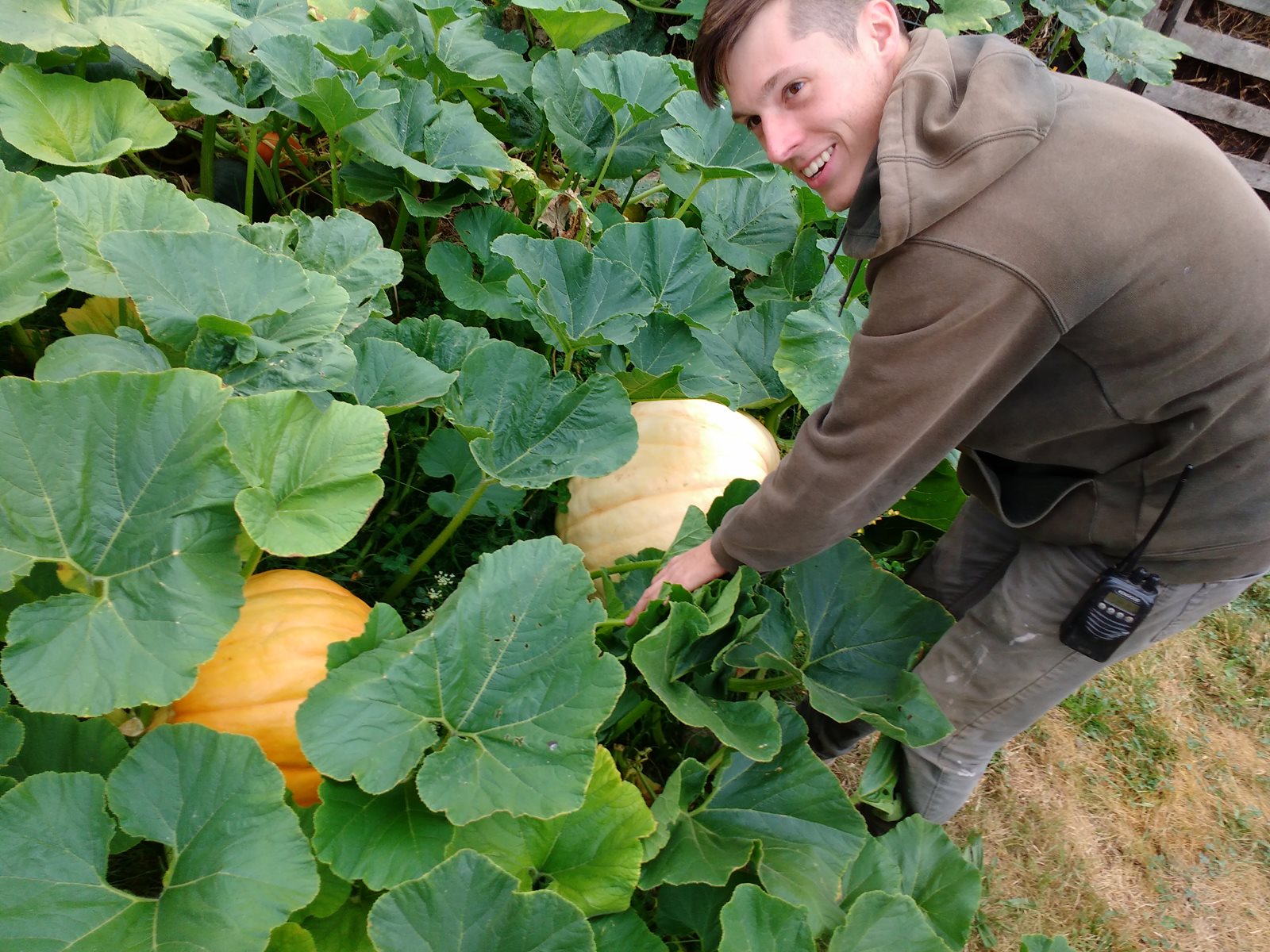
Thrusting his hand into the decaying mass of organic matter crawling with worms Leroy exults, “This is pretty great to be honest. These worms are great! They work so hard.”
The end product is worm castings, a perfect fertilizer to be used back on campus. “It’s just worm poop,” Leroy says.



